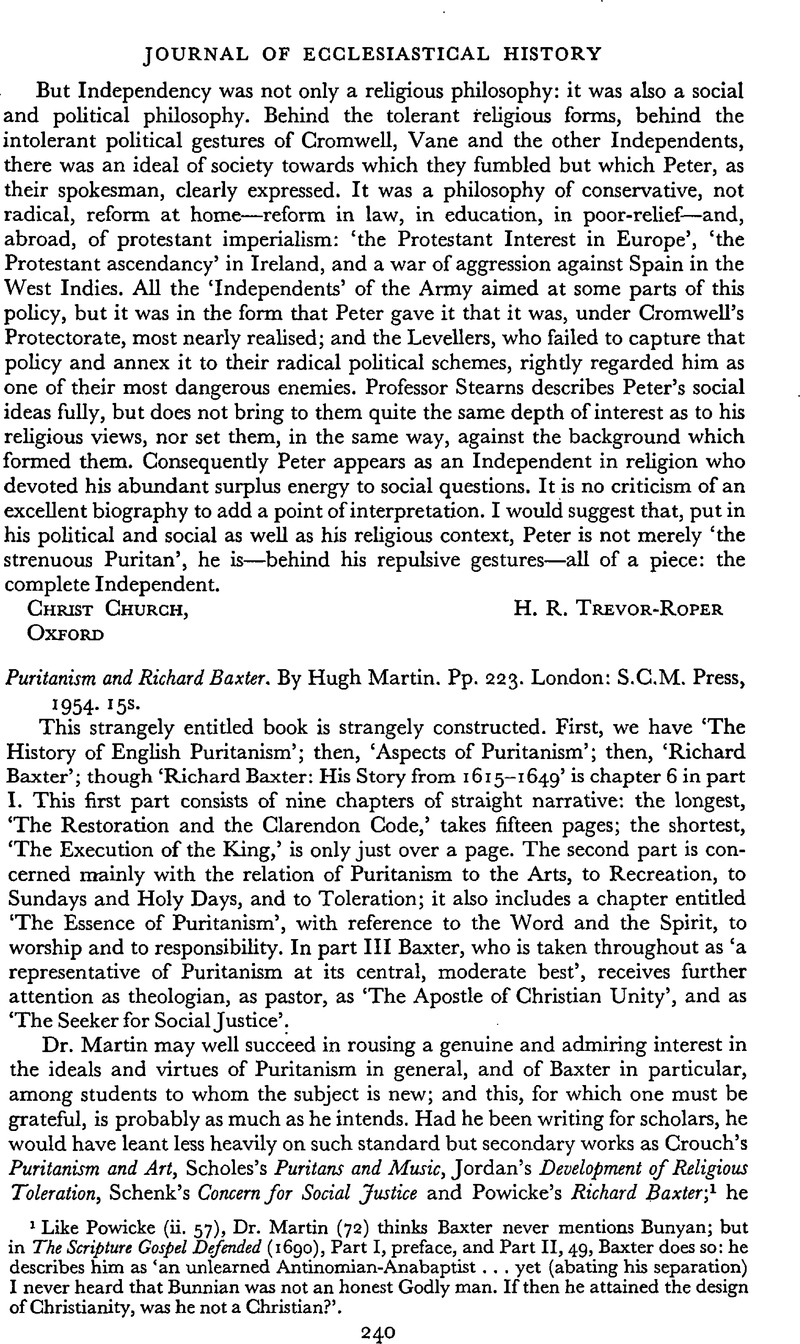No CrossRef data available.
Published online by Cambridge University Press: 25 March 2011

page 240 note 1 Like Powicke (ii. 57), Dr. Martin (72) thinks Baxter never mentions Bunyan; but in The Scripture Gospel Defended (1690), Part I, preface, and Part II, 49, Baxter does describes him as ‘an unlearned Antinomian-Anabaptist … yet (abating his separation) I never heard that Bunnian was not an honest Godly man. If then he attained the design of Christianity, was he not a Christian?’.
page 241 note 1 Extracts from this correspondence may be found in my article, ‘Some Movements for Unity 300 years ago,’ in the Journal of the Presbyterian Historical Society of England, X.i (May, 1952).
page 241 note 2 For ‘I will not despise an elegant Physician’ in the phrase from Seneca on p. 126, where the sense requires ‘eloquent’, it is not Dr. Martin who is to blame but the printer of Baxter's A Saint or a Brute, from which Dr. Martin is quoting; in Baxter's Five Disputations, where the phrase recurs, the same printer gets it right.